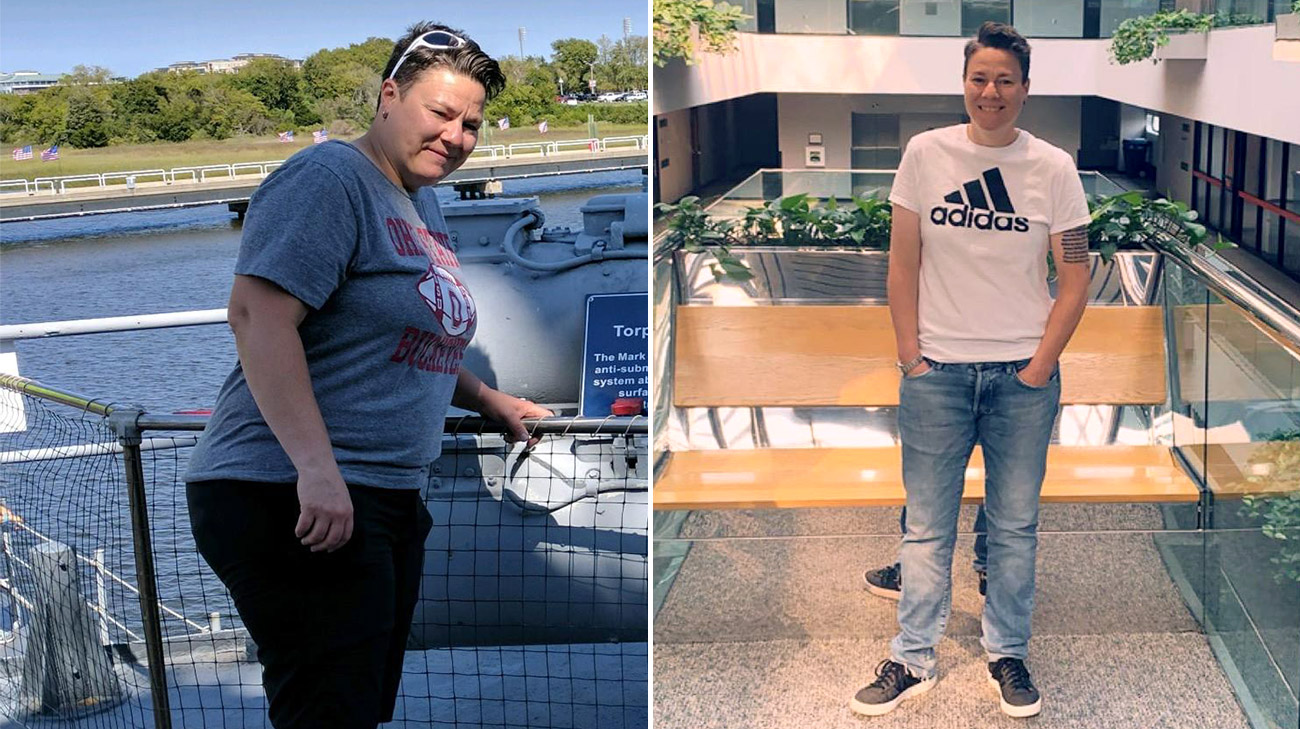
“Even though I was an athlete, I’d always had a bit of a weight problem, but it wasn’t a big deal when I was younger,” says Monica Kress, now 45. “As I got older, I still ate like an athlete, but my metabolism changed, and my weight fluctuated. I dealt with some depression issues, and a growth on my thyroid led to surgery to remove it. After that, I gained weight pretty consistently and was experiencing joint pain that was limiting my ability to work and be active, so decided to look into weight loss surgery.”
Monica’s family medicine physician was supportive of the idea and referred her to Christopher Daigle, MD, a member of the Bariatric Surgery Center at Cleveland Clinic Akron General.
To be a candidate for surgical weight loss, an individual must meet any of the following criteria:
- Be more than 100 lbs. over your ideal body weight
- Have a Body Mass Index (BMI) of over 40
- Have a BMI of over 35 and be experiencing severe, negative health effects, such as high blood pressure or diabetes, related to being severely overweight
- Be unable to achieve a healthy body weight for a sustained period of time, even with medically supervised dieting
“I wasn’t sure if I was overweight enough – I weighed 232 pounds, but after meeting with the bariatric surgery team and talking about my options, I did meet the criteria,” says Monica. “In fact, I was more than 80 pounds over my ideal body weight. From research I’d done, I thought a sleeve gastrectomy would work best for me, and Dr. Daigle confirmed that.”
Monica began a six-month process to prepare for surgery. During that time, she had to lose weight, and meet with various members of the bariatric team. She underwent a psychological evaluation to identify any factors that might interfere with success after surgery, like eating disorders, unhealthy activity or thought patterns, substance abuse, lack of support, poor coping or severe mental health symptoms.
She also had extensive nutrition counseling with a dietitian to address proper hydration, achieving adequate protein intake, vitamin supplements, and how to read nutrition labels to make healthier food choices.
“Even though I was an athlete, I’d always had a bit of a weight problem, but it wasn’t a big deal when I was younger... the surgery gave me back my belief in myself. And my knees don’t hurt anymore!”
Nurse practitioner and clinical coordinator of Akron General’s bariatric program, Amy Laktash, CNP, is involved with patients from the time they first reach out for information, through the course of treatment leading up to surgery, the surgery itself and follow-up for a year or more after.
“I work with the patient and our entire team to move the patient through the program swiftly and safely, ensuring their best health prior to and following surgery,” says Amy. “The accreditation of our program by the American Society of Metabolic and Bariatric Surgery speaks to the quality of care we provide and the standards we adhere to.”
During pretesting, Monica was diagnosed with sleep apnea. Once treatment for that was in place, she was scheduled for a sleeve gastrectomy.
“The goal of the surgery was to improve Monica’s quality of life, to restore her to the level of activity she was used to,” says Dr. Daigle. “Weight loss surgery can be very effective with addressing weight issues, and other health problems as well. It can add years to your life, and is as safe as a hysterectomy, gallbladder or joint replacement surgery.”
For Monica, the hardest part was having to make changes to her eating habits. “Now, food sometimes tastes different, and I’ve had to adjust to different quantities,” she says. “Going out to eat can be a challenge because our society revolves around food, but I automatically get a to-go box.”
The best part of the process was watching the weight fall off. Within nine months of her surgery, she was considered to be at a healthy body weight with a Body Mass Index (BMI) of 25. Monica now exercises 5-6 times a week for at least 30 minutes, and walks, bikes and runs. “The surgery gave me back my belief in myself. And my knees don’t hurt anymore!” she says.
Related Institutes: Digestive Disease & Surgery Institute

